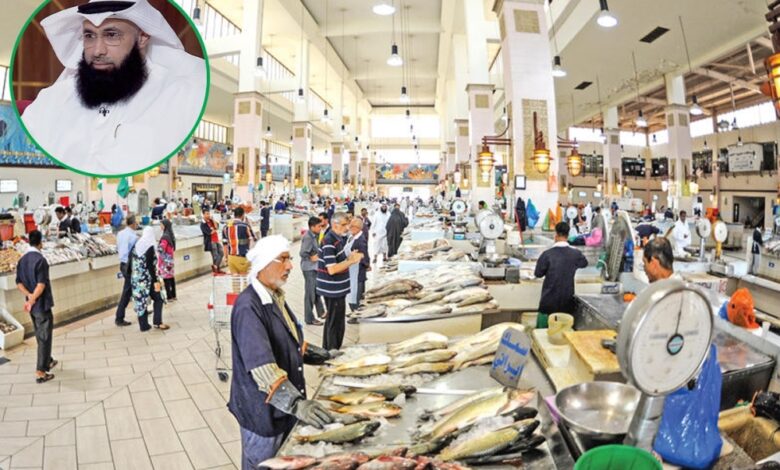Kuwait Fish Union calls for direct sales system to replace auctions in local markets

Chairman of the Board of Directors of the Kuwait Fish Trade Union, Fares Bou Qamaaz, has called for the direct sales system in place of the current auction-based model used in fish markets.
He emphasized that this shift would bring multiple benefits, including resolving many of the persistent challenges facing the market and easing the burden on inspectors from the Ministry of Commerce and Industry, reports Al-Jarida daily.
In a press statement, Bou Qamaaz urged the Ministry and other relevant authorities to implement this system, aligning with regional development strategies.
He noted that direct sales will ensure a more consistent fish supply, reduce prices, and simplify transactions by establishing a clear seller-buyer relationship, as is done in other commodity markets.
Bou Qamaaz highlighted several key advantages of the direct sales system such as stabilizes and sustains fish supply, enabling importers to plan based on reliable pricing, preserving fish quality, as products remain stored in ice-packed boxes from the country of origin, unlike the auction system where fish are exposed in open baskets for hours.
This is in addition to preventing price manipulation, which can occur in auctions due to behind-the-scenes deals.
The system will also optimize the market space, since vertical storage and selling reduces the footprint required compared to horizontal auction displays.
He added that the current fish market space is insufficient to handle growing imports, which now include fish from Iran, Pakistan, India, Egypt, Saudi Arabia, Oman, the UAE, Turkey, Norway, and Spain.
As a result, a significant volume — up to 80 tons per day — is being sold from refrigerated trucks outside the official market.
Bou Qamaaz questioned why imported fish, which already enter the country with complete documentation (invoices, certificates of origin, health certificates, and customs declarations), aren’t sold directly like other products such as meat, chicken, and fruits.
He noted that Gulf countries such as the UAE (Dubai and Abu Dhabi) already operate successful fish markets based on direct sales.
He revealed that 14.5 million kilograms of fish were imported last year, valued at 43.1 million Kuwaiti dinars, underscoring that imports fulfill market demand.
However, efforts to reduce prices and improve accessibility are being stalled by bureaucratic delays and excessive red tape.










